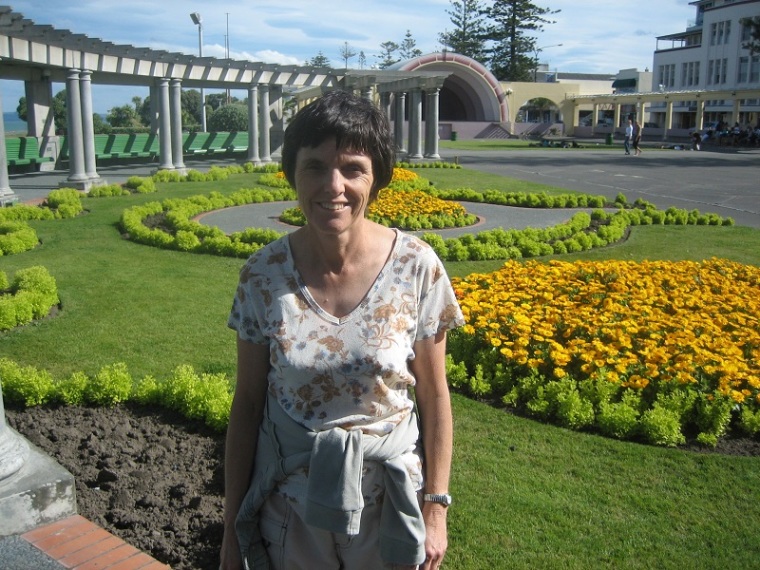

In a recent News.com article it was revealed that an English council has been considering banning apostrophes from its street signs because of the "potential confusion" the punctuation causes.
It all started when a year ago, the famous UK book retailer Waterstones removed the punctuation from its brand name which created much interest – indeed who would argue against such a distinguished name within the literary world.
Waterstone's to Waterstones seemed such a reasonable change in that the apostrophe added considerable cost to any hard-signage and no one ever read Waterstone's as if there was an apostrophe - with that every so slight alteration of tone.
Waterstones it became and that, as they say, set the "cats among the pigeons". Dread the thought!
Did this mean a rewrite of the Oxford Dictionary with Americanisms ditching the "u" out of words (such as humour) and phonetically spelling words as they sounded. Would it mean ditching "gh" from a host of well loved English words, such as light and bright and the rest of them.
The lack of humour (or humor) it seems in all of this, was soon ringing around Britain when Mid Devon District Council said its new streets had not contained apostrophes for many years, but the policy could now be made official.
This change came from the people. It had been in existence for year in and year out, this had an undercurrent, and a grass roots approval, well before anything official was said, and now, signage having been up for years without the apostrophe, is now, after all this time, creating havoc throughout academia – what is England coming to?
The apostrophe according to some of those in academe is sacrosanct, it is like the Westminister system and Royal family, it is unchangeable, it is the ingredient that holds the nation together. The apostrophe is right up there, it seems.
Oxford Dons' rosy cheeks are turning a dull grey; the British librarians are having to have a quite little sit down; the Education department hoi-polios, pin stripe suits have turned into popkadots. Good grief, the scared apostrophe is at risk, another world government calamity not to even mention those dreadful Europeans.

What is the apostrophe
What better source that the Oxford Dictionary itself to get a good explanation of what is an apostrophe and how and when it should be used.
Oxford introduces it this way: re you uncertain about when to use an apostrophe? Many people have difficulty with this punctuation mark. The best way to get apostrophes right is to understand when and why they are used.
There are three main cases – click on the link, but it essence:
Possession (and five exceptions): you use an apostrophe to show that a thing or person belongs or relates to someone or something: instead of saying the party of Ben or the weather of yesterday, you can write Ben's party and yesterday's weather. It then goes on to list five regular exceptions to this rule. Moreover they are all important exceptions.
Omission - an apostrophe can be used to show that letters or numbers have been omitted. Here are some examples of apostrophes that indicate missing letters. I'm (short for I am), he'll (he will), it's hot (it is hot) and the like.
Plural – one uses plural (s or es) on the ends of words but there are cases in which it is acceptable to use an apostrophe to form a plural: "I've dotted the i's and crossed the t's." and another, "Find all the number 7's".
The Free On-Line Dictionary describes the 'apostrophe' as - "The superscript sign ( ' ) used to indicate the omission of a letter or letters from a word, the possessive case, or the plurals of numbers, letters, and abbreviations."

The exceptions
It is the exceptions to the above rules that interest me, and these are situations in which we find in every day use.
The Oxford Dictionary sets out these as examples.
One exception is with personal names that end in -s: this is where one adds an apostrophe plus 's' when you would naturally pronounce an extra 's' if you said the word out loud: He joined Charles's army in 1648. (there are two "s"). Thomas's brother was injured in the accident.
Then there are some exceptions to this rule, especially in names of places or organisations, for example: St Thomas' Hospital. The Oxford Dictionary suggests if you are not sure about a name, check out their web site. Some have an apostrophe, some don't.
Another exemption is with personal names that end in - "s" but are not spoken with an extra "s": just add an apostrophe after the - "s" - The court dismissed Bridges' appeal. Connors' finest performance was in 1991.
Another exemption are with a plural noun that already ends in - "s" add an apostrophe after the "s": The mansion was converted into a girls' school. The work is due to start in two weeks' time. My duties included cleaning out the horses' stables.
And another exemption still - with a plural noun that doesn't end in – "s" add an apostrophe plus "s": The children's father came round to see me. He employs 14 people at his men's clothing store.
Have you got all that?
Problematic
Mid Devon Council communications manager Andrew Lacey said the proposed policy covered "a whole host of practical issues", aimed at reducing potential confusion over street names.
I kind of agree with him !
The various English translations of the Bible is a mixed bag depending on British or American productions, but it may be of interest that the original Greek had no apostrophe's whatever (nor syntax). The reader put them in as they went along as the syntax is contextual. For example, David's sheep (he looked after the sheep). Jesus' death on the Cross (Jesus death had other significance). Seminary isn't all table tennis, wine & cheese.
When I was writing this article, I had two young fellows from the local Jehovah's Witnesses come to my door and I recounted this apostrophe controversy. They were unaware that the Hebrew and Greek had no such gramma in the written text, and it was at this point I illustrated how their people applied the English gramma very differently to the historic orthodox Christian position in a whole range of different doctrinal essentials of Salvation.

Dr Mark Tronson is a Baptist minister (retired) who served as the Australian cricket team chaplain for 17 years (2000 ret) and established Life After Cricket in 2001. He was recognised by the Olympic Ministry Medal in 2009 presented by Carl Lewis Olympian of the Century. He mentors young writers and has written 24 books, and enjoys writing. He is married to Delma, with four adult children and grand-children.
Mark Tronson's archive of articles can be viewed at http://www.pressserviceinternational.org/mark-tronson.html